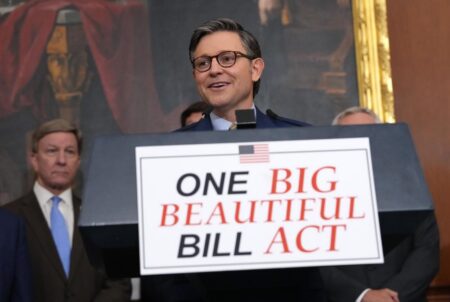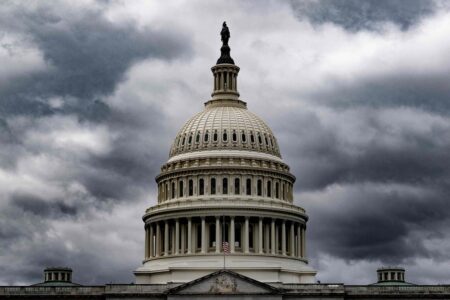As it turns out, not everyone is a fan of pickleball.
A conservative think tank is taking legal action to stop a town in Arizona from using taxes to fund local projects—including new pickleball courts. The Goldwater Institute has filed a lawsuit in Maricopa County Superior Court challenging the constitutionality of a recent tax rate boost in Gilbert, Arizona. The lawsuit asks the court to find the action unconstitutional under state law and enjoin the town from enforcing the tax.
Gilbert, Arizona
Gilbert, Arizona, is a fast-growing town in Maricopa County. Less than an hour’s drive from Phoenix, it’s the fifth-largest municipality in the state. Once known as the “Hay Shipping Capital of the World,” the town has pivoted, now boasting science and technology businesses. As a result, the population—currently at 288,000—has doubled every five years from 1980-2000, with an anticipated population of over 330,000 by 2030. That growth hasn’t gone unnoticed—the town has even been mentioned in a few Forbes lists over the years, snagging spots on 2016’s The 15 Hardest Working Cities In America in 2016 and The 10 Best U.S. Cities For Finding Jobs in 2018.
And while you might think that the weather and location lends itself to becoming a retirement mecca, nothing could be farther from the truth. Nearly a third of Gilbert residents are under the age of 18, and two-thirds of the population are under the age of 45. The median age in the town is a youthful 34.5 compared to a median age of around 39 in the U.S. as a whole.
Gilbert promotes itself as a low-tax area. There is, the town points out, no corporate franchise tax and no state estate tax. And while the sales tax is relatively high at 7.8%, most services are exempt. Arizona personal income tax rates range from 2.88 – 5%, landing it generally in the country’s lower third of tax rate burdens. Gilbert doesn’t impose a property tax, meaning that infrastructure projects must be funded through bonds or sales tax revenues.
Tax Increases
As the town has grown, so, too have expenses and needs. Last October, the town council voted to raise tax rates to fund various projects. As a result, the general transaction tax rate—sales taxes—increased from 1.5% to 2.0% (for context, that’s a boost of 50 cents on a $100 purchase). The township also increased the additional rate on Transient Lodging—bed taxes—from 2.8% to 5% (that tax is paid by those who stay in hotels or other overnight lodging). The new tax rates went into effect on January 1, 2025.
The town earmarked the funds for the police and fire departments and parks and recreation projects. A statement on the town’s website explained the choices, noting, “Their services and initiatives promote safety, physical and mental well-being, community engagement, and a sense of belonging, making the community a desirable place to live, work, and raise a family.”
Police department funding will be used to create additional space for existing police operations, community policing services, and administrative functions, as well as adding a new police substation and crime lab.
Fire department funding will be used to rebuild and remodel existing fire stations, and to build a center for fire, police, and specialty apparatus.
Parks and recreation funds are earmarked for trail improvements (including lighting), a new park, recreation centers, a splash pad—and those controversial pickleball courts. The town plans to build a 16-court pickleball complex to include bleachers for the main court, restrooms, a ramada, and parking. (If you don’t know what a ramada is, no need to Google, I looked it up for you: it’s an open shelter, often having a dome-shaped thatched roof.)
The Complaint
Not everyone in the town was thrilled with the move. And in response, Barth v. Town of Gilbert was filed on December 27, 2024, in Maricopa County Superior Court.
The plaintiffs are Jonathan Barth, described in court documents as a Gilbert taxpayer and short-term rental owner, and the Home Builders Association of Central Arizona, a trade association for residential construction and homebuilding. The plaintiffs are represented in court by the Goldwater Institute.
The Goldwater Institute is a conservative (some would argue libertarian) think tank located in Phoenix, Arizona. The tax-exempt organization was founded in 1988 in Arizona with what it describes as “Senator Barry Goldwater’s blessing.” (Goldwater is a former U.S. Senator who unsuccessfully ran as the Republican nominee for president against Lyndon B. Johnson in 1964.)
The complaint alleges that the increased tax is a burden to the plaintiffs. Specifically, Barth argues that it will “impair his short-term rental business because it will make his short-term lodging more expensive for customers who have cost-effective lodging options available outside of Gilbert.” Similarly, the HBACA notes in the complaint that the increase “will cause financial hardship to its members and contribute to rising housing prices.”
The basis for the lawsuit is found in state law. In 2018, Arizona amended its constitution to allow, among other things, that “The state, any county, city, town, municipal corporation, or other political subdivision of the state, or any district created by law with authority to impose any tax, fee, stamp requirement, or other assessment, shall not impose or increase any sales tax, transaction privilege tax, luxury tax, excise tax, use tax, or any other transaction-based tax, fee, stamp requirement or assessment on the privilege to engage in, or the gross receipts of sales or gross income derived from, any service performed in this state.”
That wording, the plaintiffs claim, means the Gilbert tax hike is unconstitutional. The Institute referred to it on social media as an “illegal pickleball tax.”
Joe Setyon, senior communications manager for the Goldwater Institute, told Forbes in a statement, “The burden of these increased taxes will ultimately fall hardest on Gilbert businesses and consumers, raising the prices of services like construction contracting and lodging.” He added, “We sued Gilbert to vindicate taxpayers’ rights and protect businesses and consumers from these illegal tax hikes.”
The Town’s Response
The Town of Gilbert clearly disagrees. In a lengthy statement to Forbes, a spokesperson wrote, in part, “Contrary to the claims made by the Goldwater Institute in the lawsuit, the taxes are in full compliance with Arizona law and the Arizona Constitution. Our legal team has thoroughly reviewed the relevant statutes and precedents to ensure that any tax increase and associated processes strictly adhere to the requirements of state law. The assertion that these taxes are illegal is unfounded and misrepresents the legal framework governing municipal taxation and longstanding case law in Arizona. For example, Goldwater Institute’s claim that the increase in the bed tax constitutes an unconstitutional tax on a service misconstrues the Arizona Constitution’s prohibition on tax increases for services.”
The former mayor of Gilbert, Brigette Peterson, voted against the ordinance involving the tax changes. Peterson did not issue a comment on the matter, directing Forbes to the incoming mayor, Scott Anderson. Anderson did not respond to a request for comment.
What Comes Next
The lawsuit was filed just before the holidays. Despite the tax hike’s January 1, 2025, effective date, I wouldn’t expect the case to move quickly through the courts.
Importantly, a verdict may not be the last word on the matter. Setyon said about the Institute’s involvement, “Our goal is to ensure Gilbert businesses and consumers do not have to bear the burden of these illegal tax hikes, and to stop government officials from trying similar illegal schemes in the future.”
Taxes at the state and local levels don’t always get a lot of attention, but are increasingly important. The incoming Trump administration has made clear that budget cuts are on the horizon—that likely means that federal government funding traditionally targeted to services that benefit states, counties, and municipalities will shrink. That leaves local governments with decisions to make about spending and revenues and some, like Gilbert, will opt to raise taxes. How that plays out in legislatures and in courts—including those of public opinion–is worth keeping an eye on.
Read the full article here

















